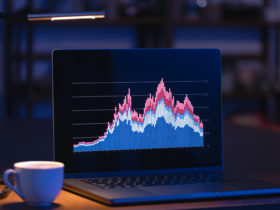Benchmark Indian equity indices have been in a downtrend since the October 18 week when Nifty touched an all time high of 18604 level. Since then, the index has fallen nearly 10%.
A host of factors have affected the market and the main reason being Foreign Institutional Investors selling their positions at a record pace. The FIIs have sold for more than Rs 50000 crore in the last two months – October and November.
The selling pressure is due to the Federal Reserve announcing its tapering plan of bond-buying programme and also hinting at increasing the interest rates at a faster pace to tame inflation in the US. In addition, the FIIs believe that the Indian markets are overvalued and have decided to look at the Chinese market, which was beaten down in the last few months, for new investment opportunities.
Moreover, the new Covid variant called the Omicron has given the final blow to the global economy which was gradually limping back to normalcy.
Going ahead, the Indian stock market and other developed markets are likely to remain under pressure until a clarity emerges on how dangerous the new Covid variant can be.
Traders and short-term investors are advised to remain in the sidelines and should not be tempted to buy stocks. Only people with high risk taking capabilities or long-term investors are in a better position to invest in the markets.
Since fresh travel restrictions and curfews are likely to be imposed, investors can look at defensive sectors like pharma, consumer staples, FMCG and IT for medium-term to long-term investments. Investors can also look at high-quality banking stocks where their deposit base is strong.
Further, investors can look at fundamentally strong companies for investments. These companies have a strong balance sheet, can absorb losses if the current situation deteriorates, ability to raise capital through debt market, and presently have less debt. The company should also have a sound and experienced management which can wade through the crisis.
Some metrics to look at are companies with high return on equity and capital employed, market leader with pricing power and strong growth profile.
New-age companies which have not seen any market cycles or economic cycles are really risky for retail investors as these companies can go bust under continued pressure.
If investors have patience and are ready to be invested for five to seven years, and have already invested in fundamentally strong stocks, then they can look at buying those companies’ stocks in dips. It is prudent for retail investor to wait and watch in which way the market moves and then take a call if they have to book profits or invest more as the stock prices corrects.





